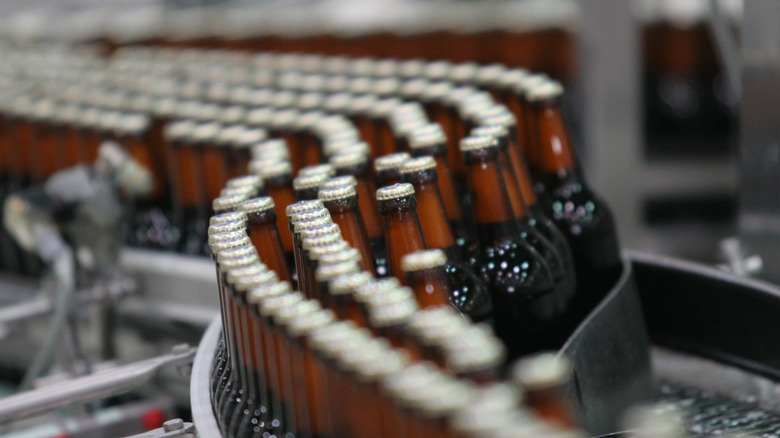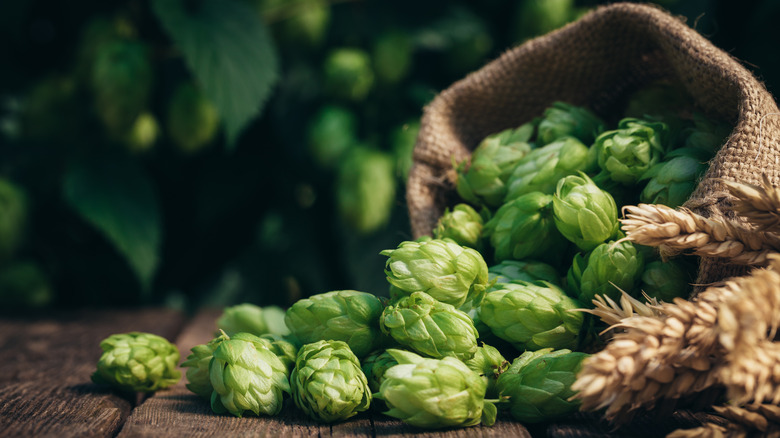Why The Type Of Hops You Use To Brew Low-Alcohol Beer Is Important
In 2020, innovative low-alcohol brewery Brewdog opened an alcohol-free beer bar. Such a move underscores low-alcohol beer's continuing surge in popularity. The beverage has several reported advantages, like being much lower in carbs, calories, and sugar, per Light Drinks.
Low-alcohol beer is not only trendy, it's federally regulated, too. According to Cornell Law, a low- or reduced-alcohol beverage must be less than 2.5% ABV. While the brewing process to achieve such a low fermentation is not too different from normal beer, there are some hurdles. If a fermented beer is heated to evaporate the ethanol, then many of the hop aromas are lost alongside the alcohol. Alternatively, if the beer is not fermented substantially, the hops do not impart much flavor. Brewers are turning to innovations like extracting hop-aromas to make low-alcohol beer more flavorful and less watery (via Science Daily).
Beer's constituent ingredients — grains, hops, yeast, and water— are critical to the drink's flavor, explains Tapville Social. With low-alcohol beer, the hop selection is extra important.
Low-alcohol beers are more sensitive to the bitter qualities of hops
As explained in Brulosophy, low-alcohol beers tend to be more susceptive to overly bitter flavors from hops. While it's tricky to pinpoint an exact cause, it's likely due to how hops react with ethanol and the shorter fermentation time. As such, the variety of hops, as well as how they're added to the brew, is very important. To impart better flavor, it's best to use hops farmed for aroma rather than bitterness. Unfortunately, hops lose their flavor quickly, before the alcohol evaporates — their aroma is gone in five minutes, and the taste disappears in 15, according to Brew Your Own.
The boiling of hops is referred to as "bittering," and several hop varieties, like chinook, magnum, and galena, are sold for this purpose, says Mr. Beer. These hops should probably be avoided for low-alcohol beers. Instead, it may be preferable to reach for hops built for dry-hopping and whirlpooling, two methods of preserving hop flavors after the boil, via Beer and Brewing.
Of course, these selections are dependent upon style, as well as specific hop and wort combinations, via Precision Fermentation. Thankfully, you don't need to make your own low-alcohol beer — there are plenty of great options for sale.

